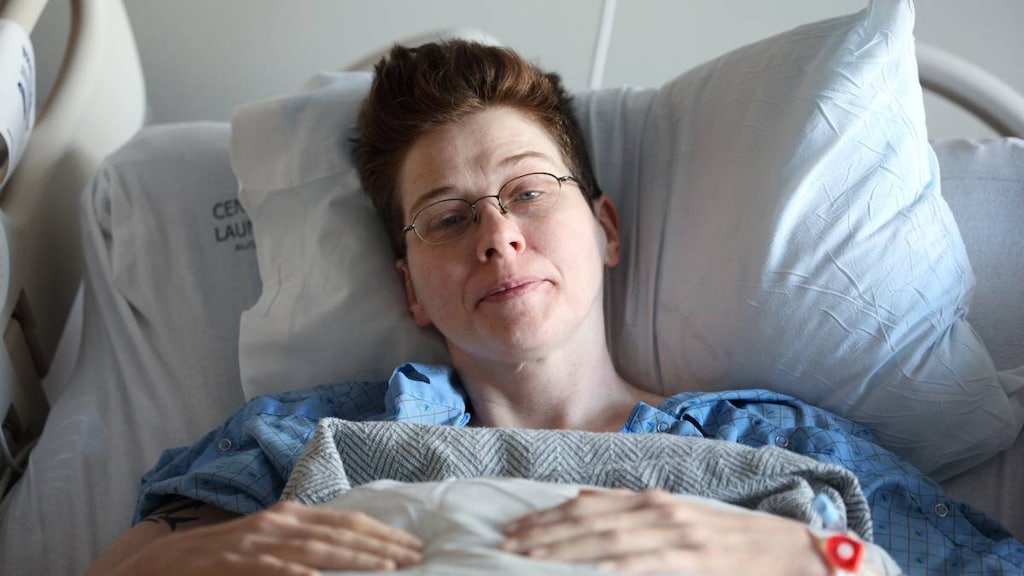Managing Crohn’s Disease Flare-Ups: What You Need to Know

If you’re one of the 3 million Americans with Crohn’s disease, then you know just how painful and debilitating the condition can be. When active, Crohn’s can cause severe and challenging symptoms, such as abdominal pain, diarrhea, fatigue, weight loss and even malnutrition.
If there’s any good news for those with Crohn’s disease, it’s that the condition does not cause symptoms all the time. Many with Crohn’s will experience periods of remission, when the disease isn’t bothering them. But it’s the active periods of the disease, commonly known as flares or flare-ups, that cause the most problems.
What are Crohn’s Flares?
When it comes to Crohn’s disease, a flare is simply a period of time where the symptoms of the disease reemerge after a period of remission. The reason flares can be so problematic for people with Crohn’s is that the symptoms can be almost debilitating and essentially take you out of your day-to-day life.
When a Crohn’s flare occurs, for example, you usually can’t travel too far from a bathroom at any given time. It’s typical for frequent and urgent trips to the bathroom to occur, if not outright diarrhea or bloody stools. Nausea and vomiting can also be standard symptoms of Crohn’s flare-ups.
Other Crohn’s Flare Symptoms
Those aren’t the only symptoms that can occur with a Crohn’s flare-up, either. Since Crohn’s flare-ups can last for weeks or even months, the result can be persistent low energy, fatigue, loss of appetite and weight loss. Over time, the inability for the body to absorb vital nutrients can lead to malnutrition or delayed growth and development in children. Other complications that can result from Crohn’s disease include the following:
- Mouth sores
- Fever
- Skin sores, rashes or bumps
- Night sweats
- Joint and body aches
- Eye pain and redness
- Vision changes
- Kidney stones
- Liver complications
- Changes to your menstrual cycle
- Osteoporosis
Crohn’s Flare Treatment and Management
Fortunately, the millions of people with Crohn’s disease are not helpless. There are a number of things that can be done to help manage Crohn’s flares with lifestyle choices, as well as actively treat the flares with medications.
Here’s a roundup of the things that can help:
#1. Change Your Diet
When a Crohn’s flare is active, your diet plays a key role in how severe the symptoms can be. For example, dairy products, high-fiber foods, greasy, fried or fatty foods, spicy foods, alcohol and caffeine can all aggravate the flare and make your symptoms worse.
If you have issues related to dairy products, it may help to try an enzyme product such as Lactaid that can ease the digestion of foods with lactose. This can help with symptoms such as abdominal pain and gas. And typically, choosing low-fat foods, instead of buttery or fried foods, can help relieve the symptoms of diarrhea.
If high-fiber foods cause you problems, this can be more challenging because it involves a number of otherwise healthy options such as fruits, vegetables and whole grains. Foods such as cabbage, broccoli or cauliflower are often the biggest contributors to Crohn’s flares, so you can try steering clear of those first. Popcorn, nuts, seeds and corn are another group of foods that can cause issues. In addition, steaming, stewing or baking fruits and vegetables may be easier on the digestive tract than eating them raw.
Other dietary considerations for those with Crohn’s flares include drinking plenty of water to stay hydrated and to counteract the fluid lost due to diarrhea and other symptoms. Also, many people with Crohn’s have success breaking down their food intake into five or six smaller meals throughout the day, rather than eating a lot of food at three big meals.
Finally, those with Crohn’s disease may be best-suited to meet with a registered dietitian to create a more formal dietary plan. There are a lot of challenges related to planning a diet for Crohn’s disease, and a dietitian is a great resource for those who need additional help.
#2. Stop Smoking
The list of reasons to stop smoking is a lengthy one, and you can definitely add Crohn’s disease to that list. Smoking negatively affects Crohn’s in a couple ways. One, it makes it more likely for you to develop the disease in the first place. And two, once you have Crohn’s disease, smoking is more likely to trigger a Crohn’s flare or aggravate the symptoms of that flare. So if you have Crohn’s disease and you’re still struggling with quitting, now might be your time. Talk to your doctor about your options, including medications and nicotine replacement therapies.
#3. Manage Stress
Some stress in our lives is inevitable, but for those with Crohn’s, stress can trigger flare-ups or make existing flare-ups worse. For help in managing stress, the Mayo Clinic recommends trying exercise, biofeedback or relaxation and breathing techniques such as meditation or yoga. Research has shown that even a moderate regular exercise routine can help normalize bowel function by reducing stress and relieving depression.
#4. Look Into Supplements
Supplements may be helpful for those with Crohn’s disease due to the nutrients that they are unable to absorb during their flares. For example, some people with Crohn’s flares may experience chronic intestinal bleeding and need to take iron supplements to prevent the development of iron deficiency anemia. Calcium and vitamin D supplementation is also helpful, as these supplements can fight off the risk for osteoporosis related to Crohn’s disease.
In fact, Crohn’s disease can interfere with the absorption of so many different vitamins and minerals that a comprehensive multivitamin may also be a good choice for a daily supplement. Of course, be sure to talk to your doctor about what supplements might be right for you.
#5. Ask Your Doctor About the Right Medications
A number of medications can also be helpful in the management of Crohn’s disease flares. Immune system suppressors are medications that target the immune system by stopping the action of substances within the body that cause inflammation. Some options in this category of drugs that your doctor might recommend include azathioprine, mercaptopurine, infliximab, adalimumab, methotrexate and others. Your doctor may recommend a combination of immune system suppressors to see what works best in keeping your Crohn’s symptoms under control.
Corticosteroids may be another option your doctor may recommend, particularly if you’re not responding well to other treatments. Antibiotics can also be useful in managing some of the symptoms of Crohn’s disease, such as abscesses and fistulas. And over-the-counter anti-diarrheal medications and pain relievers can also help with managing symptoms.
#6. Consider Surgery
At some point in their lives, almost half of those with Crohn’s disease will require surgery to remove damaged portions of their digestive tract. The surgery doesn’t cure Crohn’s disease, but it can reduce symptoms and improve quality of life for a time. It’s usually considered an option when symptoms are severe and other treatments are unsuccessful.
#7. Get Support
There’s no question that Crohn’s disease and the symptoms related to Crohn’s flare-ups can be challenging. It often won’t just impact you physically, but emotionally as well. Many people with Crohn’s disease also cope with depression. If you find yourself dealing with emotional challenges related to Crohn’s, it may be beneficial for you to join a support group or talk with a therapist about the challenges you’re facing.
Article references
- Overview of Crohn’s Disease, Crohn’s & Colitis Foundation, 2019. https://www.crohnscolitisfoundation.org/what-is-crohns-disease/overview
- Signs and Symptoms of Crohn’s Disease, Crohn’s & Colitis Foundation, 2019. https://www.crohnscolitisfoundation.org/what-is-crohns-disease/symptoms
- Managing Flares and IBD Symptoms, Crohn’s & Colitis Foundation, 2019. https://www.crohnscolitisfoundation.org/sites/default/files/2019-07/managing-flares-brochure-final-online.pdf
- Crohn’s Disease, Mayo Clinic, 2019. https://www.mayoclinic.org/diseases-conditions/crohns-disease/diagnosis-treatment/drc-20353309




